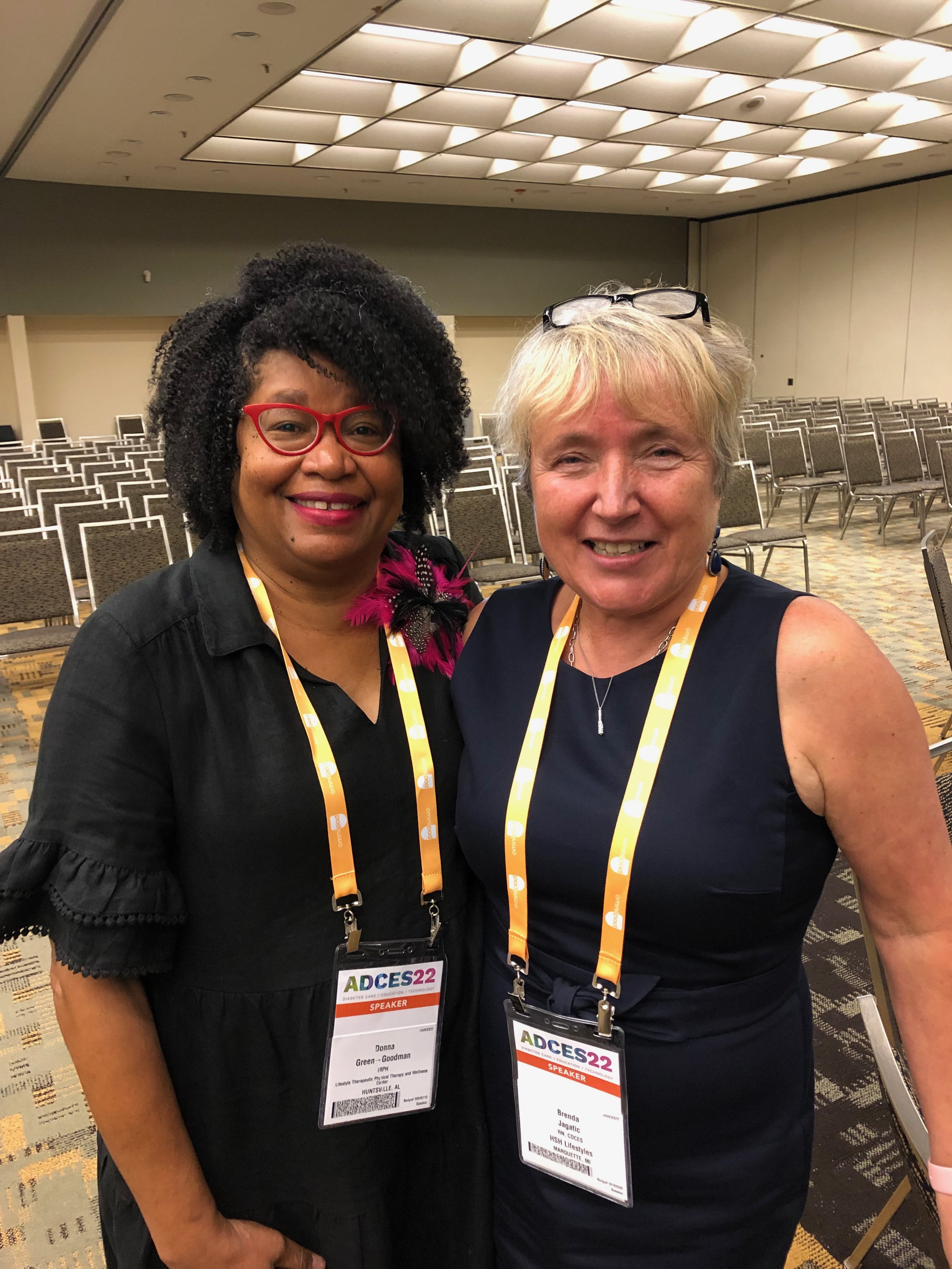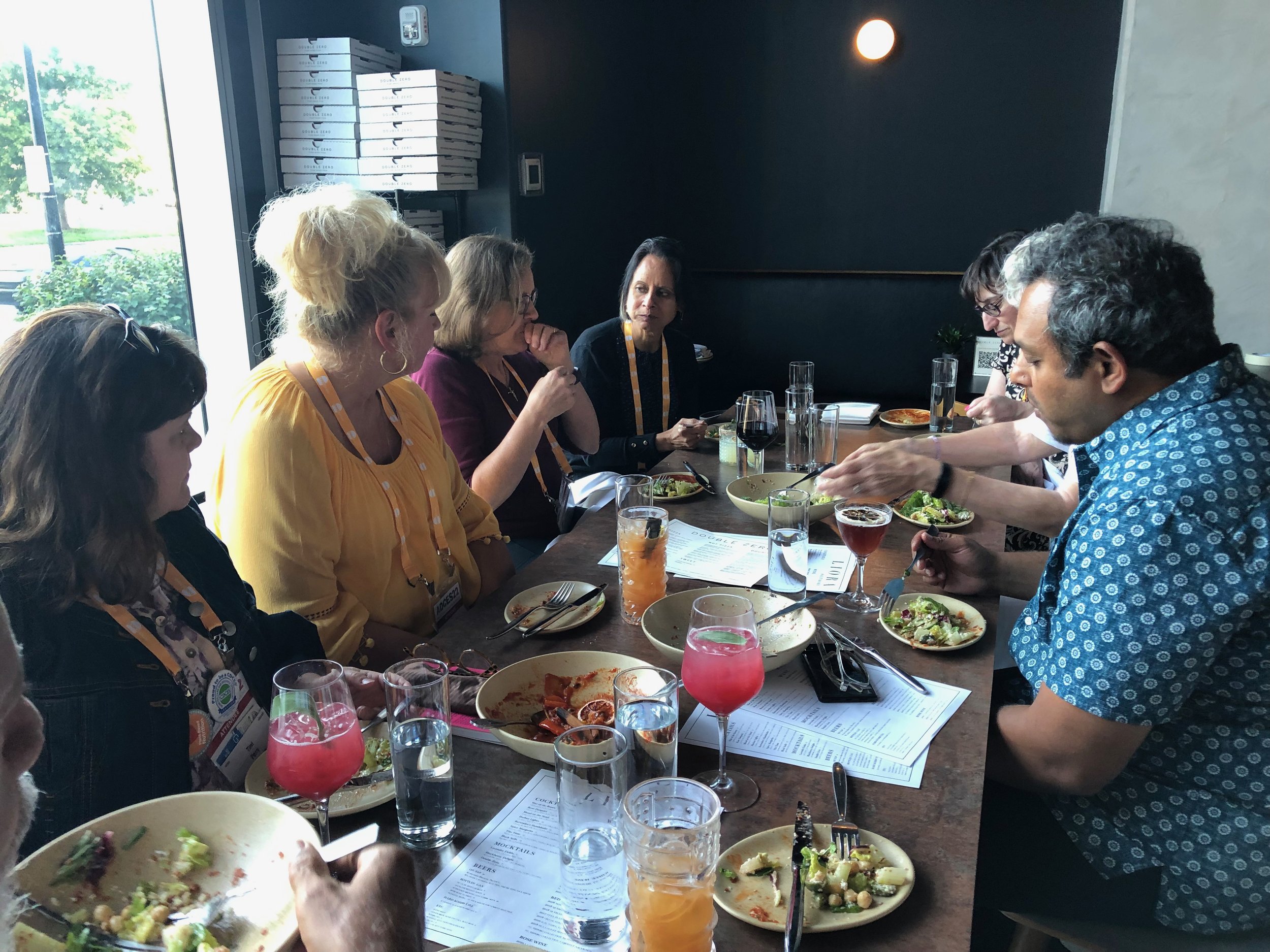Now You’re Speaking My Language: Cultural Sensitivity in the Plant Powered Journey to Better Health!!
I grew up in a culture that was plant powered waaayyyy long before it became popular. So, as I began my professional career and was coaching people in their own choices for better nutritional health, I was dismayed as I encountered differences like vegetarianism, allergies to dairy, the Muslim/Hindu/Buddhist Faiths and people of other cultures that had relocated to America when we had nothing to offer them to accommodate their “special needs”. Yes, there was a time when the standard American Dietary regulations didn’t have options to offer if your needs fell outside of their parameters. Because my family had successfully found “alternatives”, I knew of them…..but they were not “acceptable” to the “normal” recommendations.
This past weekend I spoke at the National Diabetes Care and Educational Specialists (NDCES) conference in Baltimore. And, let me tell you something….times they are a changing….FINALLY!! Invited by Brenda Jagatic Chair, Plant-Based Nutrition Community of Interest for ADCES, I participated in a very frank discussion about plant powered living and minority communities with Brenda Jagatic, BscN, .RN, CDCES, Rohit Moghe, Pharm D, MSPH, Marc Ramirez, BA, and Lauren Plunkett, RDN, LD, CDCES.
Each of us were able to describe our own journey with plant-powered living - including what led us to plant powered nutrition, how we incorporated into our culture and how it had affected our own health and well being. What amazed me was the common thread in our discussion about our “cultures” being ignored on the Journey to Better Health…..whether we were African-American, Mexican, Asian/East Indian or Type-1 Diabetic (which is a smaller percentage of people with diabetes). Apparently, the weight of Colonialism/Colonization seems to outweigh facts about the benefit of plant powered living and many who are seen as racially marginalized groups, actually acculturate to the dietary habits/recommendations of the dominant group. Rohit described it this way: “European colonizers have taken their way of living around the world and imposed it on other cultures. And, today they continue exporting poor health.”
That comment resonated with me and reminded me of a conversation I had with Dr. Milton Mills. He was counseling a Black, female patient, who was allergic to dairy, about going plant based. She was convinced of his points, but still hesitant. When he prodded her, she said that even though she was allergic, she continued to consume animal products because the “government” said she needed them for her health and well-being. I can only imagine how many others were in the same situation and had no knowledge of how to access necessary nutrients from other plant powered food sources instead of from animal products.
Here’s What I Know For Sure:
For communities of color, faith/spirituality is an integral core value and informs a lot of their choices, including how they eat and interact with the environment. As many rediscover that faith/spirituality and embrace it, they see improvement in their health. Honor their faith/spiritual beliefs.
Traditional Cultural Plant Powered Foods are plenteous in communities of color and are loaded with the same health benefits as the popular quinoa and broccoli. A great article that address that for Caribbeans titled West Indian Plant Foods is found in the October 2021 issue of Today’s Dietitian. Two of the authors are professors of nutrition at Loma Linda University, home of the Adventist Health Study that documents the value of plant powered living in a large faith group.
African Americans are the fastest growing demographic group that are adapting a plant powered diet. Many are young people, who are interested in its value to their health and the environment and who are thoroughly enjoying the myriad ways of preparing it that are both nutritious and delicious and culturally relevant. Older African Americans are a harder sell, but when they connect its’ value to improvement of their health conditions, and body temples, they are more willing to embrace it.
It’s way past time for the majority culture to stop promoting a diet steeped in Eurocentrism to people of other cultures. The evidence based research is everywhere. And, if you call yourself a competent professional, all it takes is registering for a CEU course, or googling some of the latest scientific data that explains the value of plants for cultures other than yours. The days of saying you can’t survive on culturally based plant foods are over….and it shows how long ago you were educated if you’re still saying it.
You can’t come into another persons culture with all the answers, if you haven’t listened first. Like my daddy used to say “Be quiet and listen, you might learn something.” Brenda Jagatic shared 5 points that resonated deeply with me as you think about how to better connect with other cultures on plant powered nutrition or in general:
-Get to really know people of other cultures socially
-Be open-minded to what you find out and relate without judgment
-Try other cultural foods recipes and at restaurants to get acquainted with their flavor
-Research foods of other cultures
-Value and accept the differences you find in other cultures as excellent choices.
I will always advocate for food that is healthy. And, I will always do it in the context of culture. Quinoa and broccoli don’t mean a whole lot to the people I live among and teach down here in Dixie. And, they may grin at you while you’re talking, but believe me they are not EVEN gonna try what you are recommending. Believe me on THAT!!! Bless your little heart!! Let the people you are blessed to serve hear what you have to say in their own language. And, if that is too difficult for you, find an interpreter. I’m pretty sure you will even enjoy some of the foods they eat…..especially since the seasoning is always on point!! IJS!!!
Thanks ADCSE for the work you are doing to impact the lives of people with diabetes.
Thanks Brenda for this awesome opportunity and what you are doing to get the word out!!
Thanks PCRM for all that you do in the world of plant powered living.
Thanks Baltimore for some amazing plant powered food.
Thank you GAWD for all the amazing and delicious options you have for people around the world.
Eat Cultural Plant Powered Foods!! You will LOVE Them!!! It’s Wellness Wednesday Yawl!!
I’m Still Shoutin’ Ova Here!!
Donna
#plantpowered #culturalhealth #culturalfoods #culturalsensitivity #ADCES22 #eatplants #ethnicfoods #cookinupgoodhealth #wellnesswednesday #decolonizeyourplate #soulfood #betterhealth #wellness #PCRM #LLUSPH #eatplants #baltimore #innerharbor #doublezero #gangstervegan #liora #nuvegan




